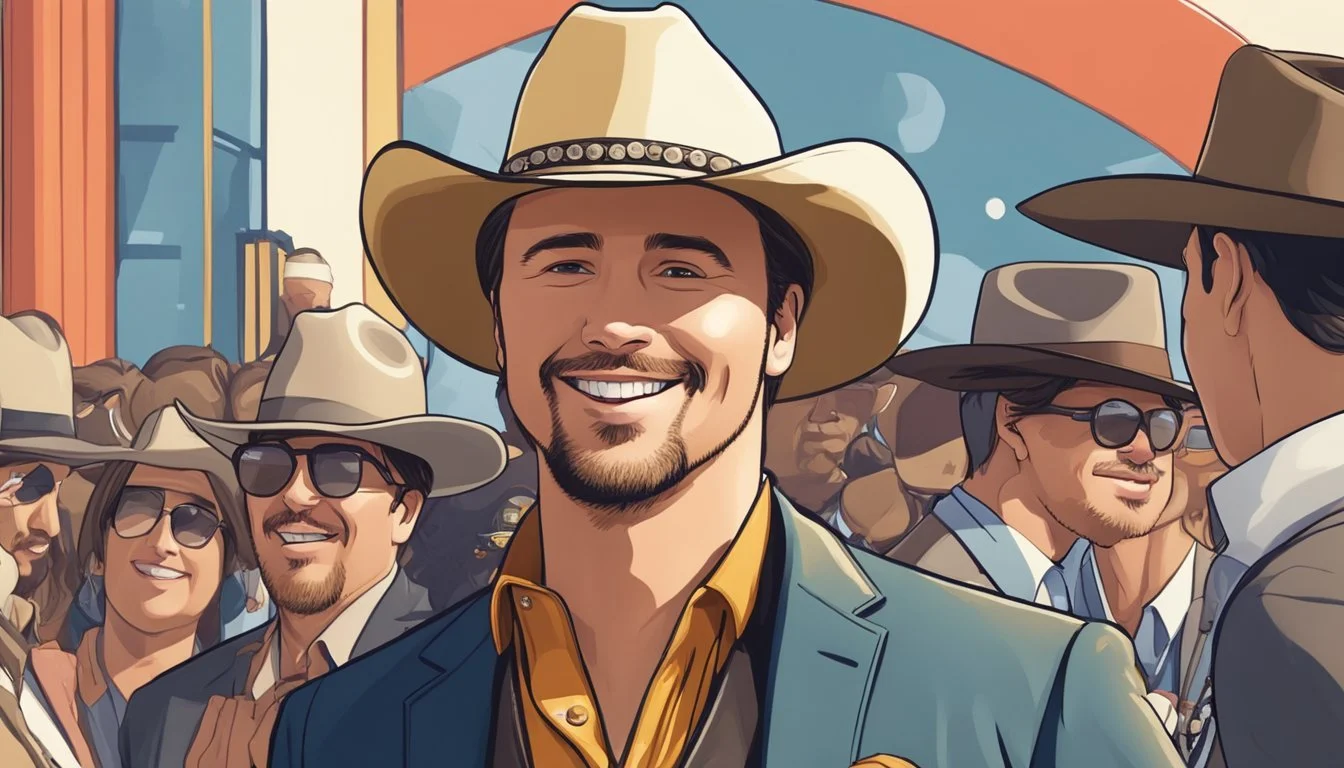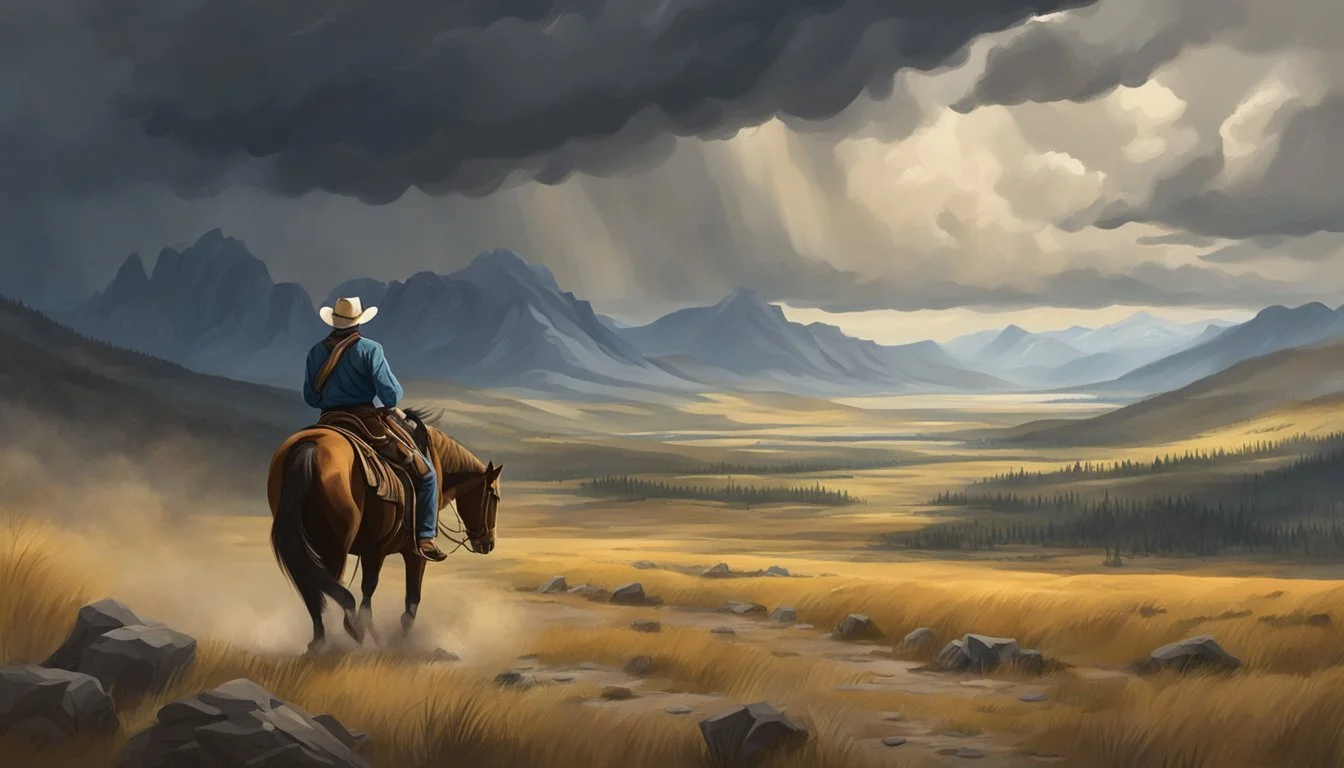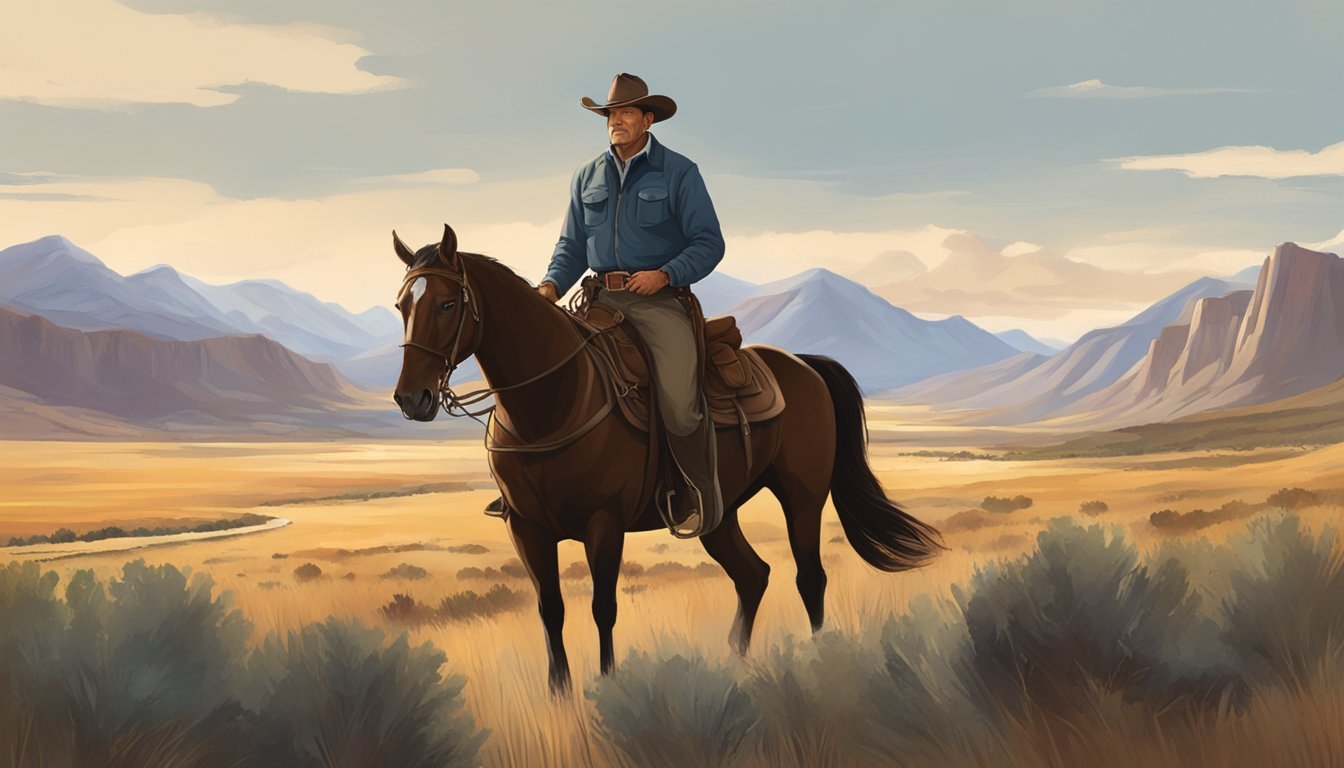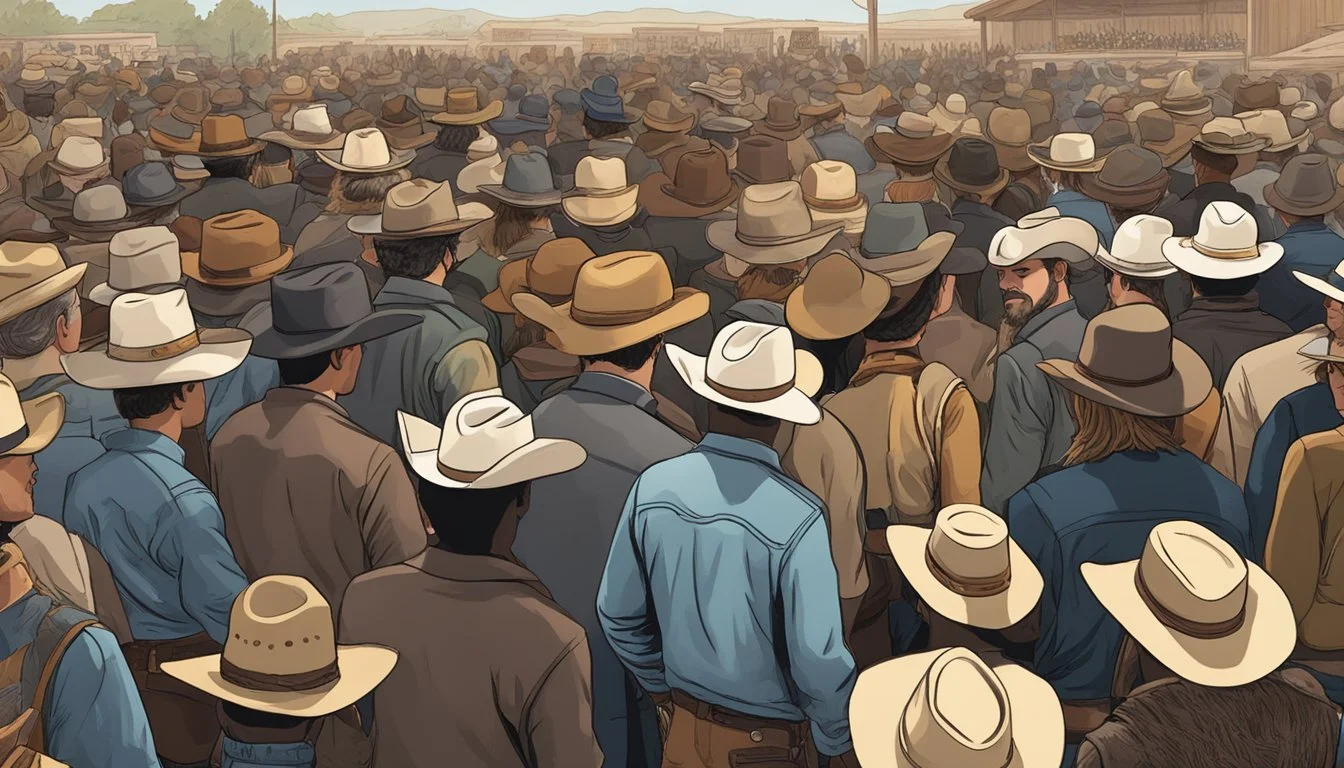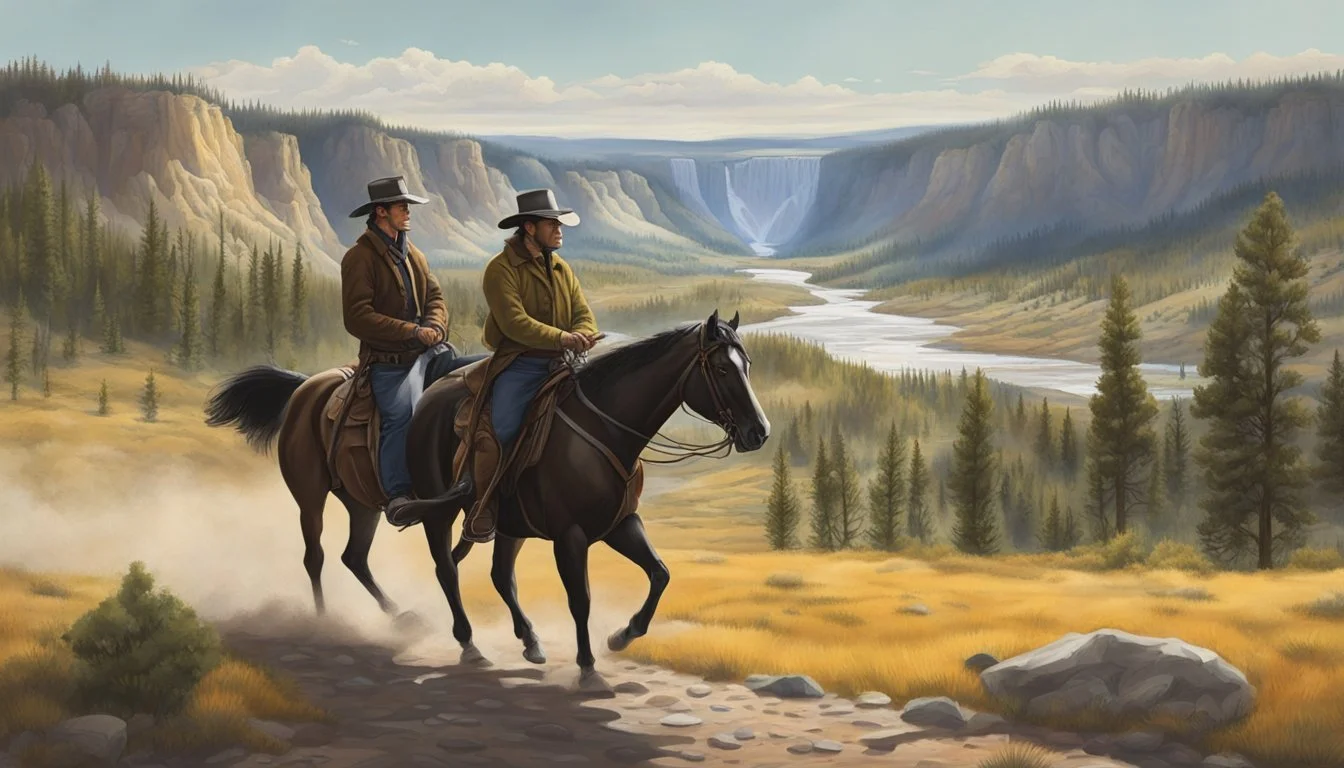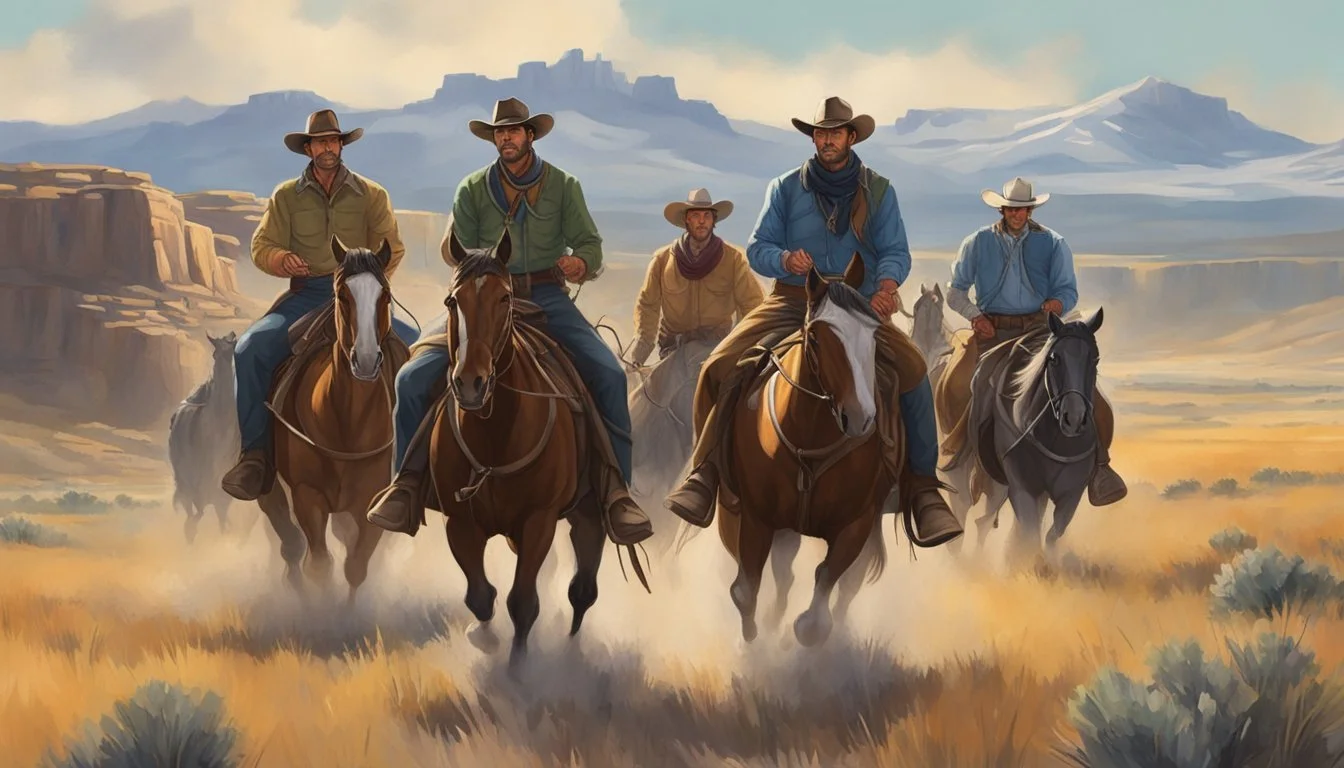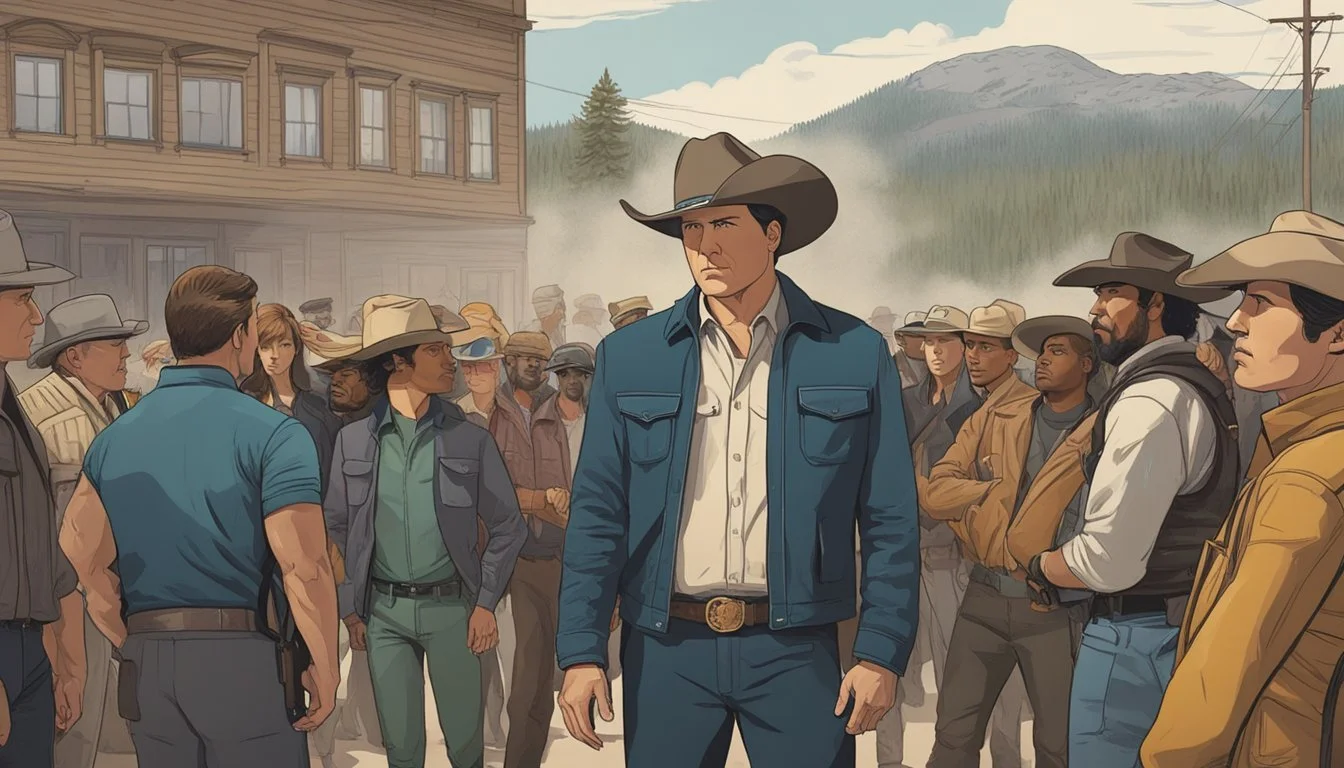John Dutton's Hollywood Dreams: From Rancher to A-List Superstar!
John Dutton, the rugged Montana rancher from Yellowstone, has captivated audiences with his commanding presence and unwavering determination. Kevin Costner's portrayal of this iconic character has been instrumental in the show's success, drawing viewers into the world of modern Western drama.
Imagining John Dutton as a Hollywood actor presents an intriguing role reversal that could reshape the entertainment landscape. His no-nonsense attitude and raw charisma might translate well to the big screen, bringing a unique blend of grit and authenticity to various roles. The transition from ranch patriarch to silver screen star would undoubtedly be a significant departure from his Montana roots.
Such a career shift could potentially impact the world of cinema, introducing a fresh perspective and rugged charm to Hollywood productions. Dutton's experiences managing a vast ranch and navigating complex family dynamics might inform his approach to acting, resulting in nuanced and compelling performances across diverse genres.
The Journey from Yellowstone to Hollywood
John Dutton's transformation from a rugged Montana rancher to a Hollywood star would be a dramatic shift. This journey would involve intense character study, leveraging Kevin Costner's influence, and navigating the glitz of Tinseltown.
John Dutton's Character Study
John Dutton's transition to acting would require a deep dive into his own persona. His stoic demeanor and commanding presence on the Dutton Ranch could translate well to certain roles. Dutton might find himself drawn to Western films or dramas that echo his real-life experiences.
He could use his intimate knowledge of ranch life to bring authenticity to cowboy characters. His no-nonsense attitude might suit him for roles as tough lawmen or business tycoons. Dutton's acting journey would likely begin with smaller parts that align closely with his natural disposition.
Kevin Costner's Impact on John Dutton
Kevin Costner's portrayal of John Dutton in Yellowstone would significantly influence Dutton's approach to acting. Costner's acclaimed career could serve as a blueprint for Dutton's Hollywood ambitions.
Dutton might seek Costner's guidance on navigating the film industry. He could learn about script selection, working with directors, and honing his craft. Costner's experience in Westerns like "Dances with Wolves" could be particularly valuable.
Dutton might even consider collaborating with Costner on projects that showcase their on-screen chemistry. This partnership could ease Dutton's transition from rancher to actor.
From Dutton Ranch to the Walk of Fame
John Dutton's journey to Hollywood stardom would be marked by significant changes. He'd trade his cowboy hat for a tuxedo at red carpet events. The Dutton Ranch would give way to movie sets and trailers.
Dutton might struggle with the loss of privacy that comes with fame. He'd need to adapt to constant media attention and fan interactions. His gruff exterior could become an asset, creating a unique persona in the entertainment world.
As his career progresses, Dutton might see his name in lights on Hollywood Boulevard. He could transition from defending his land to accepting awards for his performances. This new chapter would showcase a different side of the formidable rancher.
Transforming Western Roles on the Big Screen
John Dutton's transition from ranch patriarch to Hollywood actor would bring a unique perspective to Western films. His authentic portrayal of ranch life could reshape cinematic depictions of the American West.
The Legacy of Westerns in Cinema
Western films have long captivated audiences with their rugged landscapes and tales of frontier justice. Classics like "The Good, the Bad and the Ugly" and "Once Upon a Time in the West" set the standard for the genre. These movies often featured strong, silent heroes and clear moral lines.
Over time, Westerns evolved to explore more complex themes. Films like "Unforgiven" challenged traditional notions of heroism and villainy.
The Transition of Western Drama into Mainstream Movies
Modern Western dramas have found new life in mainstream cinema. They blend traditional Western elements with contemporary storytelling techniques. "Silverado" (1985) marked a turning point, revitalizing the genre for a new generation.
Kevin Costner's "Dances with Wolves" (1990) further expanded the scope of Western films. It offered a nuanced portrayal of Native American cultures and environmental themes.
These films paved the way for more thoughtful explorations of the American West.
Taylor Sheridan's Contribution to Neo-Westerns
Taylor Sheridan has emerged as a key figure in the neo-Western movement. His works, including "Hell or High Water" and "Wind River," bring a fresh perspective to the genre.
Sheridan's stories often tackle modern issues within Western settings. They explore themes of economic struggle, cultural identity, and the changing face of rural America.
His writing style combines gritty realism with poetic dialogue. This approach has redefined audience expectations for contemporary Westerns.
The Craft of Acting in Film and Television
Acting in film and television requires different skills and techniques. The medium impacts how actors portray characters, handle props like guns, and navigate audience expectations.
Character Portrayal: Film vs TV
Film actors often have limited time to develop their characters, focusing on key moments and arcs. Television allows for more gradual character evolution over multiple episodes or seasons. In films, performances tend to be more condensed and intense. TV roles can explore nuanced character development through recurring storylines.
Film scenes may require fewer takes, putting pressure on actors to nail their performance quickly. Television productions often have tighter schedules, demanding actors adapt rapidly to different directors and script changes.
Box Office Expectations for Western Stars
Western stars face unique box office challenges. The genre's popularity fluctuates, impacting ticket sales. Actors known for Western roles may struggle to break typecasting in other genres.
Big-budget Westerns can be risky investments for studios. Star power often plays a crucial role in attracting audiences to these films. Successful Western actors may leverage their popularity to negotiate better deals or pursue passion projects.
Television Westerns can build dedicated fanbases over time, potentially leading to spin-offs or movie adaptations.
The Art of Gun Handling on Screen
Proper gun handling is crucial for authenticity in Westerns and action-heavy productions. Actors undergo extensive training to safely and convincingly use firearms on set. This includes learning proper stance, aiming techniques, and period-appropriate weapon handling.
Safety protocols are paramount, with strict guidelines for using blank-firing weapons and prop guns. Actors must convey the weight and recoil of firearms convincingly without compromising safety.
Choreographing gunfights requires coordination between actors, stunt performers, and special effects teams. Realistic gun handling can significantly enhance the credibility of a performance and the overall production.
John Dutton's Fictionalized Career Highlights
John Dutton III's transition from rancher to Hollywood actor sparked a meteoric rise in the entertainment industry. His rugged charm and commanding presence quickly made him a sought-after talent in Tinseltown.
Pivotal Roles and Performances
Dutton's breakout role came in the gritty Western "Frontier Justice," where he portrayed a stoic lawman cleaning up a corrupt town. His performance earned critical acclaim and caught the eye of major studios. He followed this success with a string of diverse roles, including:
A tough-as-nails military commander in the war epic "Operation Sandstorm"
A conflicted politician in the political drama "Capitol Hill Showdown"
A charismatic con artist in the heist film "The Big Score"
Dutton's versatility shone through in each role, cementing his status as a Hollywood heavyweight.
Collaborations with High-Profile Directors
Top directors clamored to work with Dutton, recognizing his ability to bring depth to complex characters. He collaborated with Martin Scorsese on the crime thriller "Underground Empire," delivering a nuanced portrayal of a mob boss torn between family and power.
Dutton's partnership with Christopher Nolan resulted in the mind-bending sci-fi film "Quantum Shift," where he played a time-traveling physicist. This role showcased his range and ability to tackle challenging material.
Quentin Tarantino tapped Dutton for his revisionist Western "Bloodlines," capitalizing on the actor's innate understanding of the genre.
Award Nominations and Wins
Dutton's performances garnered numerous accolades from the entertainment industry. His trophy case includes:
Best Actor Oscar for "Frontier Justice"
Golden Globe for Best Actor in a Drama Series for the limited series "American Dynasty"
Screen Actors Guild Award for Outstanding Performance in "Underground Empire"
He received multiple Emmy nominations for his guest appearances on popular TV shows. Dutton's consistent delivery of powerful performances made him a regular fixture during awards season, with Paramount often mounting strong campaigns for his work.
Cultural Impact and Audience Reception
John Dutton's transition to Hollywood would significantly influence American entertainment and reshape perceptions of Western-themed productions. His unique persona would captivate audiences and leave a lasting mark on popular culture.
America's Fascination with the Dutton Family
The Dutton family's portrayal in Yellowstone has struck a chord with viewers across America. John Dutton's character embodies traditional values and rugged individualism, resonating with many Americans. His move to Hollywood would likely amplify this fascination, bringing the essence of Montana ranching to a broader audience.
Fans might eagerly follow John's new roles, drawing parallels between his on-screen personas and the beloved rancher. This crossover could spark renewed interest in Western-themed content and rural American lifestyles.
Influence on Contemporary Western Productions
John Dutton's foray into acting would undoubtedly impact the landscape of Western productions in Hollywood. His authentic portrayal of a modern rancher could set new standards for realism in the genre.
Filmmakers might seek to capitalize on the Yellowstone phenomenon, leading to an increase in contemporary Western projects. This trend could result in more nuanced depictions of rural America in film and television.
John's presence in Hollywood could also attract top talent to Western-themed productions, elevating the genre's prestige. His influence might extend to costume design, dialogue writing, and set creation, bringing a touch of genuine ranch life to the silver screen.
Comparative Analysis of Acting Methodologies
John Dutton's transition to acting would require adopting specific techniques. Different approaches can yield varied results in portraying complex characters on screen.
Method Acting vs. Character Immersion
Method acting involves fully embodying a character's emotions and experiences. Actors often draw from personal memories to authentically portray roles. Character immersion, on the other hand, focuses on understanding the character's motivations and backstory without necessarily tapping into personal experiences.
Method actors might live as their characters off-set, while those using character immersion typically separate their personal lives from their roles. John Dutton's rugged persona could lend itself well to method acting, allowing him to channel his ranch experiences into performances.
Kevin Costner's Approach to Role Preparation
Kevin Costner, known for his portrayal of John Dutton, employs a blend of techniques in his acting methodology. He emphasizes thorough research and physical preparation for his roles.
Costner often collaborates closely with directors and writers to develop his characters. He believes in understanding the historical and social context of his roles, particularly in period pieces.
Physical transformation is also key to Costner's process. For Yellowstone, he immersed himself in ranch life to authentically portray John Dutton's mannerisms and attitudes.
Potential Storylines in Spinoff Series
John Dutton's hypothetical Hollywood career could spawn intriguing spinoff series exploring different eras and genres. These potential shows would blend the rugged Western themes of Yellowstone with the glitz and glamour of Tinseltown.
Horizon: An American Saga
"Horizon: An American Saga" could follow John Dutton's rise to stardom in Hollywood's Golden Age. The series might depict his transition from rancher to leading man, showcasing his struggles to balance fame with his Montana roots.
Key plot points could include:
Dutton's first big break in a Western film
His relationships with co-stars and studio executives
Conflicts between his on-screen cowboy persona and real-life ranching experience
The show could explore how Dutton's authentic frontier knowledge influences his performances and shapes Hollywood's portrayal of the West.
Other Historical Contexts Explored
Spinoff series could place John Dutton in various historical settings, mirroring Yellowstone's prequels like 1883 and 1923. These shows might imagine Dutton starring in films set during:
The Civil War era
The Roaring Twenties
World War II
Each series could blend fact and fiction, with Dutton's characters interacting with historical figures and events. The Paramount Network could use these spinoffs to examine how Hollywood has portrayed different periods of American history through the lens of a Dutton family member turned actor.
Psychological and Societal Themes in Dutton's Work
John Dutton's transition to Hollywood acting would likely draw on his complex character from Yellowstone. His roles might explore themes of power, family dynamics, and personal tragedy, mirroring his experiences as a ranching patriarch.
Exploration of Power and Corruption
John Dutton's acting career could feature roles that delve into the nature of power and its corrupting influence. He might portray characters grappling with ethical dilemmas in positions of authority. These roles could explore the psychological toll of maintaining control and the lengths one might go to preserve their legacy.
Dutton's performances may highlight the blurred lines between right and wrong when protecting one's interests. His characters could struggle with the moral compromises often required in leadership roles. This would reflect the complex decisions John faced as the head of the Dutton family in Yellowstone.
Family Dynamics and Personal Tragedy
Dutton's acting repertoire might include characters navigating complicated family relationships and personal loss. These roles could draw from his experiences with Beth, Jamie, and Kayce Dutton in Yellowstone. His performances might explore the psychological impact of family loyalty, betrayal, and the weight of legacy.
On screen, John could portray fathers trying to balance their ambitions with their children's needs. His characters might face the consequences of their choices on their family members. Dutton's acting could also depict the grief and resilience that come with personal tragedy, much like his character's journey in Yellowstone.
Behind-the-Scenes Insights
Yellowstone's production process offers a unique glimpse into the world of Western television. The show's filming techniques and locations play a crucial role in bringing the Dutton ranch to life. Actors on the series face challenges when transitioning between genres.
The Filming Process of Yellowstone
Yellowstone's filming takes place primarily in Montana and Utah. The show utilizes real working ranches to capture authentic Western landscapes. Cinematographers employ wide-angle shots to showcase the expansive vistas.
Cast members often perform their own stunts, including horseback riding and cattle herding. This adds realism to the performances and creates a more immersive experience for viewers.
The production team works closely with local communities to ensure minimal environmental impact during filming. Weather conditions in Montana can be unpredictable, requiring flexibility in shooting schedules.
Actor's Transition to Different Genres
Actors from Yellowstone face unique challenges when transitioning to other roles. The physical demands of the show, such as horseback riding and outdoor scenes, require different skills than typical studio productions.
Some cast members have found success in other Western-themed projects due to their experience on Yellowstone. Others have deliberately sought out contrasting roles to showcase their versatility as actors.
The show's popularity has increased the visibility of its cast, leading to more diverse opportunities in film and television. Actors must adapt their performance styles when moving from the gritty realism of Yellowstone to other genres.
Future Prospects in Hollywood
John Dutton's transition from ranch owner to Hollywood actor opens up intriguing possibilities. His rugged charm and commanding presence could lead to diverse roles and opportunities in the entertainment industry.
Potential Projects and Directions
John Dutton's strong screen presence could land him leading roles in Western films, capitalizing on his "Yellowstone" background. Action movies might also suit his physicality and gravitas. He could explore character-driven dramas, showcasing his emotional range.
Dutton might consider producing, leveraging his business acumen from ranch management. This move could give him more creative control over projects. Voice acting for animated features or video games could be another avenue, utilizing his distinctive voice.
Longevity in the Entertainment Industry
Dutton's mature age could position him for respected elder statesman roles. He might find a niche playing authority figures like politicians, CEOs, or military leaders. His real-life ranching experience adds authenticity to rural or blue-collar characters.
Adaptability will be key to sustaining a long-term career. Dutton could explore streaming platforms and limited series, which often offer complex roles for seasoned actors. Building relationships with respected directors and fellow actors could lead to recurring collaborations.
Developing a personal brand beyond acting, such as philanthropy or environmental causes, could enhance his industry longevity. This approach would maintain public interest even between acting projects.

